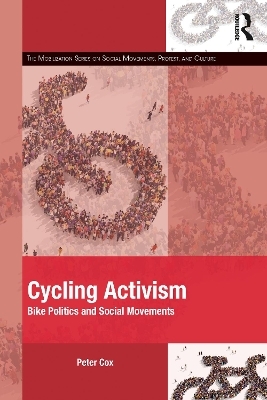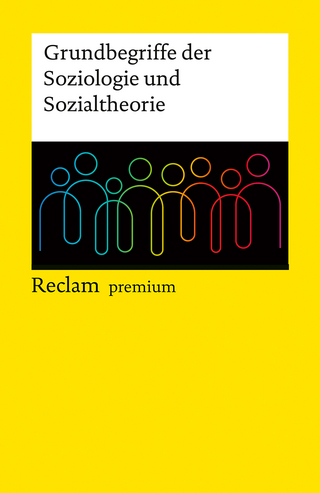
Cycling Activism
Routledge (Verlag)
978-0-367-53501-8 (ISBN)
The first full-length study of cycling activism through the lens of social movement theory, this book demonstrates that, despite tremendous differences, bike activism can be understood as a continuous and connected activity spanning a century and a half and across continents. With examples from street protest to institutional lobbying, it emphasises cycling’s current central importance to zero carbon transport futures, while showing that cycling activism is also not always about the bike or the cyclist, as successive generations of activists have used cycling to articulate different visions of freedom and autonomy. Moving from a consideration of social movement theory as a means to understand cycling activism, the author presents a series of case studies of collective action, organisations, networks and campaigns in order to illustrate and elaborate a theoretical model through which diverse campaigns and approaches to change can be understood. As such, Cycling Activism will appeal to those with interests in mobilisation for social change, mobility and transport studies, and social movement theory, as well as cycling studies.
Peter Cox is Professor of Sociology at the University of Chester, UK. He is the author of Cycling: A Sociology of Vélomobility and Moving People: Sustainable Transport Development, editor of Cycling Cultures and co-editor of The Politics of Cycling Infrastructure, Cycling and Society, and the Routledge Companion to Cycling.
Contents
Introduction
A Genealogy
Aims
Cycling as Politics
A note on language
Section One: Theorising movement activism
1) Cycling activism and social movements
Introduction: Why Cycling activism?
Cycling practices
Understanding collective action
Defining social movements
Context of analysis
Cycling studies
Social movement studies and the politics of knowledge
Configuring a research question
Conclusions
2) Movements, Mobilities and Messy Methods
Introduction
Defining the field of study: cycling is not a "social movement"
Framing activism
Why take action? Achieving goals or simply "being"?
Mobilities and Movement(s)
Social change and agency
Effective action or efficacious activity?
Campaigns and organisations versus lived experience
What is research into social movements for?
Locating the research and outlining method
Ethical reflexivity in cycling studies
Conclusions
3) Models of social change
Introduction: Finding an appropriate interpretative lens
The political subject and practical difficulties of definition
Contentious politics and machismo
Beyond a focus on the state
Outlining an analytical framework
The way of reason and the way of subjectivity
What is the purpose of change?
Change theories in cycling activism
Radar plotting as a tool for analysis and action
Change theories explored
Contagion
Education
Innovation
Institutional change
Disruption
Prefiguration
Application
Separating change theories from tactical repertoires
Further thoughts on prefiguration
Conclusions
4) Ethics, embodiment and experience in social movement research
Introduction
Reflexive research ethics
Activists, academics and knowledge
Decolonising social movements research
Rearguard intellectuals
Practical applications
Co-production
The corpus and the body as epistemological locations
The body and marginality
Emotions and actions
The limits of political analysis
Experiential knowledges
Conclusion: towards an ecology of knowledges
5) Post-hegemonic pluralism, everyday resistance and telling stories
Introduction
Post-hegemonic pluralism in cycling activism
Connecting the elements
Metaphors matter: seeds and bubbles
Bubbles and political alternatives
Infrapolitics and hidden transcripts
Lifestyle movements
Lifestyle activism and bourgeois individualism
Quiet activism
Everyday (quotidian) resistance
Collective action without intentionality
Rhetorical agency
Making Stories
Thinking about the past and using history
Stories and biography in movements
Conclusions
Section Two: Stories of cycle activism
Introducing the case studies
Advocacy is politics
Explaining the case studies
A note on referencing
6) The historic politics of UK cycle activism
Cycles, technology and politics in the latter years of the long nineteenth century
Context: cycling and political activism
The formation of the CTC and its first advocacy
The Road Improvement Association and the Road Board
Industry activism and conservatism
Enclosing the commons of the road
Road deaths in the 1930s
Cycle path controversies
Changing tactics: making protest public
Analysing interwar campaigning by the CTC
Post war campaigns: boom, bust and an uncertain voice
Conclusions
7) Transport Politics, Urbanism, Technology and Counterculture
Changing landscapes of transport policy
The New Left, 1968 and the Right to the City
The emergence of political environmentalism
UK transport politics
Anti-roads campaigning
Bicycle Activism Before the Energy Crisis
The dilemma
Paris 1972 and Richard’s Bicycle Book
Cycling and appropriate technology
After the energy crisis
8) Environmentalism, innovation and entrepreneurship
Introduction
Environmentalism and ecopolitics
Exceptionalism?
Meanwhile, back in the real world…
CTC: constructing environments of cycling
Leisure, pleasure and politics
Building a DIY cycling counterculture
Industry, innovation, design
Spreading the word, shaping the image
Cycle festivals
Wider significance: innovation and change
Conclusions
9) Cycle activism and public space
Critical Mass
Ciclovía
Interpreting mass actions: carnival and heterotopia
The right to the city: rethinking rights-based campaigning
Insurgent public spaces and tactical urbanism
Cycling through the Covid-19 pandemic
Conclusions
10) Activism in political space: institutions and internationalism
Introduction
ECF and international cycle advocacy
Antecedents – International organisation for cycle tourism (and sport)
Formation of the ECF
Changing governance: changing advocacy
From national cycling organisations representation to Brussels
ECF Projects
Cyclelogistics
Cycling and the SDGs
EU cycling economy
The Pan-European Masterplan
Academia and activism in Brazil
Feminist cycling research and activism
Background to Brazil’s upsurge in cycle activism
Challenging problem frameworks
Conclusions
11) Supporting everyday resistance, diversity and inclusion
Introduction
Everyday cycling: just riding
Action on diversity
Connecting varieties of activism
Cycling and autonomy
Bike kitchens and velonomy
Women’s voices in cycle activism
Ghost bikes and emotions
Placing everyday resistance in a larger framework
Conclusions
| Erscheinungsdatum | 01.08.2023 |
|---|---|
| Reihe/Serie | The Mobilization Series on Social Movements, Protest, and Culture |
| Zusatzinfo | 2 Tables, black and white; 5 Line drawings, black and white; 1 Halftones, black and white; 6 Illustrations, black and white |
| Verlagsort | London |
| Sprache | englisch |
| Maße | 156 x 234 mm |
| Gewicht | 453 g |
| Themenwelt | Sozialwissenschaften ► Politik / Verwaltung |
| Sozialwissenschaften ► Soziologie ► Allgemeines / Lexika | |
| Sozialwissenschaften ► Soziologie ► Mikrosoziologie | |
| ISBN-10 | 0-367-53501-7 / 0367535017 |
| ISBN-13 | 978-0-367-53501-8 / 9780367535018 |
| Zustand | Neuware |
| Haben Sie eine Frage zum Produkt? |
aus dem Bereich


